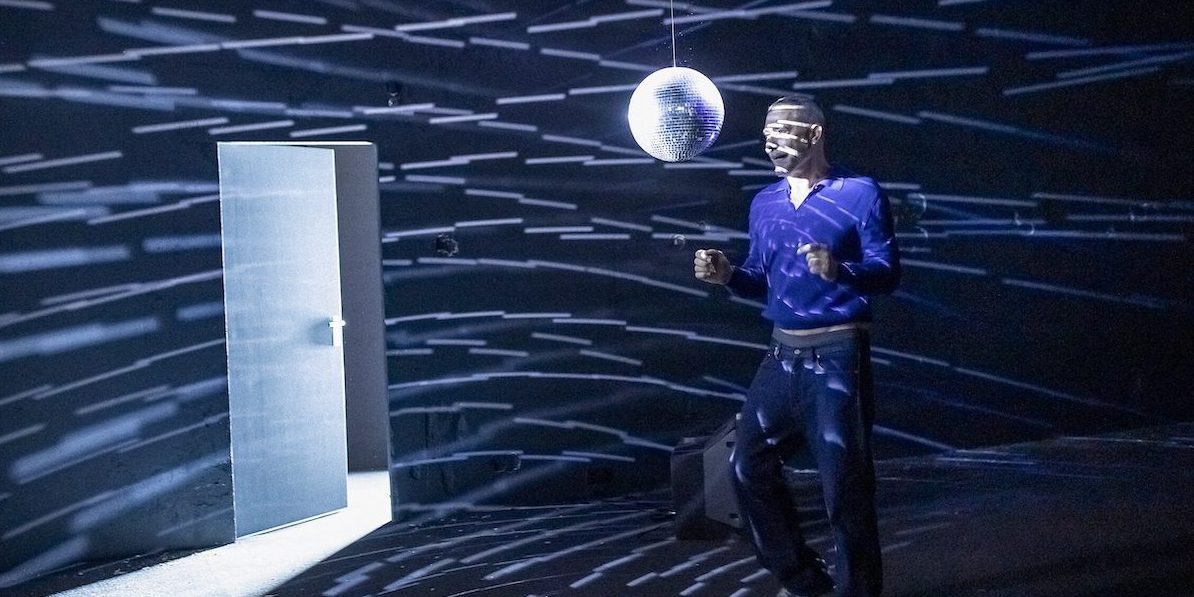Kate Winslet, Leonardo DiCaprio, and Celine Dion make special appearances (via sound and a television set) in “Who killed my father”, but it is still a one-actor show, namely the Dutch performer Hans Kesting.
For 90 minutes (way too long for a one-actor show, as good as the actor is, and Kesting is very good) he tries to answer the question of the title, even though it’s presented there without a question mark. He, as the narrator, claims that some cruel political decisions and inhuman laws made by a succession of French presidents (all named eventually) have ruined his father’s life. After the hard physical work at the local factory literally broke his back, the father is unable to find new work. Instead of helping him and showing some compassion, he is deemed “lazy” alongside all unemployed citizens by Sarkozy (who is so full of contempt that he even refuses to speak with defeated men who don’t wear suits, as if they could afford one), resulting in forcing the father to take a job in a remote town as a street sweeper, collecting other people’s rubbish and breaking his back, even more, just to avoid getting zero benefits from the heartless authorities and failing to provide for his extended family. President Chirac cancelled the subsidy on medicines for chronic diseases and put the father in a life-threatening situation, etc.
The (very) political aspect of the story interweaves, quite uneasily, with the (very) personal. The narrator describes his troubled, sometimes tormented, childhood and boyhood in a poor beach town, growing up as a “different” kid, more gentle and arty (he wants the DVD of “Titanic” for his eighth birthday, and then watches it compulsively) and perhaps more “girly” than the other boys. In one powerful scene, he gives his family a full number based on a current hit, singing and dancing extravagantly “I’m a Barbie girl, in a Barbie world/life is plastic, it’s fantastic”, to the horror of everyone. His father can’t even look at him. So it’s also a story about homophobia and masculinity.
Based on an autobiographic book by the young French literary star, Edouard Louis, Ivo Van Hove’s adaptation is too dense and too bookish, and also a bit confusing at times; The committed Kestling plays all the characters, and the text is addressed from son to father, except when it’s not, and then it loses focus. Van Hove is one of the most exciting and interesting directors in the theatre today. Still, even he can’t do much with the untheatrical material and format when an actor talks and talks (and even preaches here and there) with nothing really “happening”. The scenography (a sparse and rough, almost prison cell-like room) and lighting by Jan Versweyveld are superb, as well as Kesting’s work, but the need to revolutionize the one actor genre is not fulfilled, unfortunately, despite the call for a revolution (of a different kind) at the very end of the show.
A minute’s silence preceded the press night performance, shortly after the shocking announcement of the queen’s death. It may have been the most dramatic thing of the whole evening.

